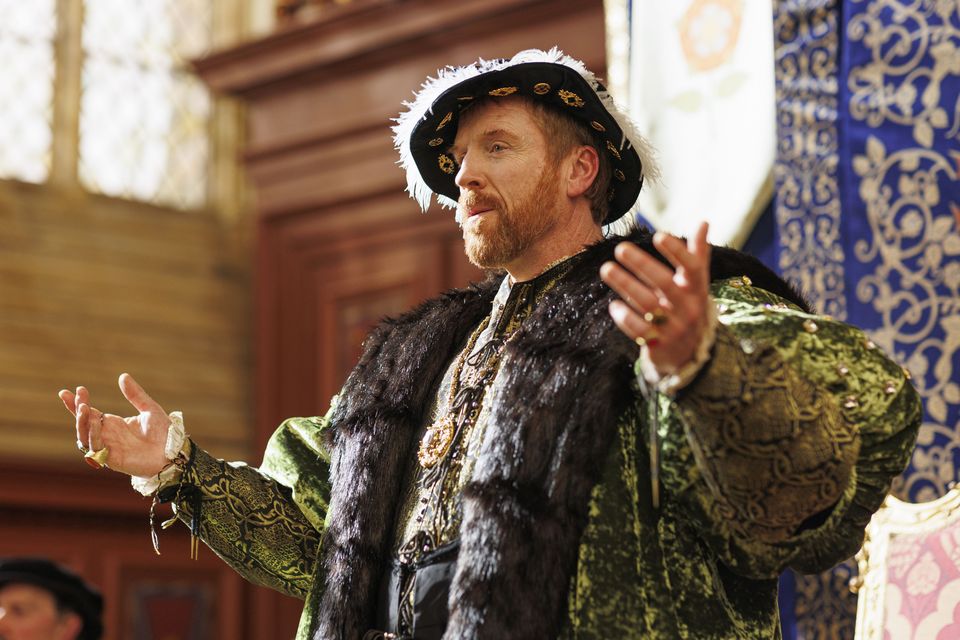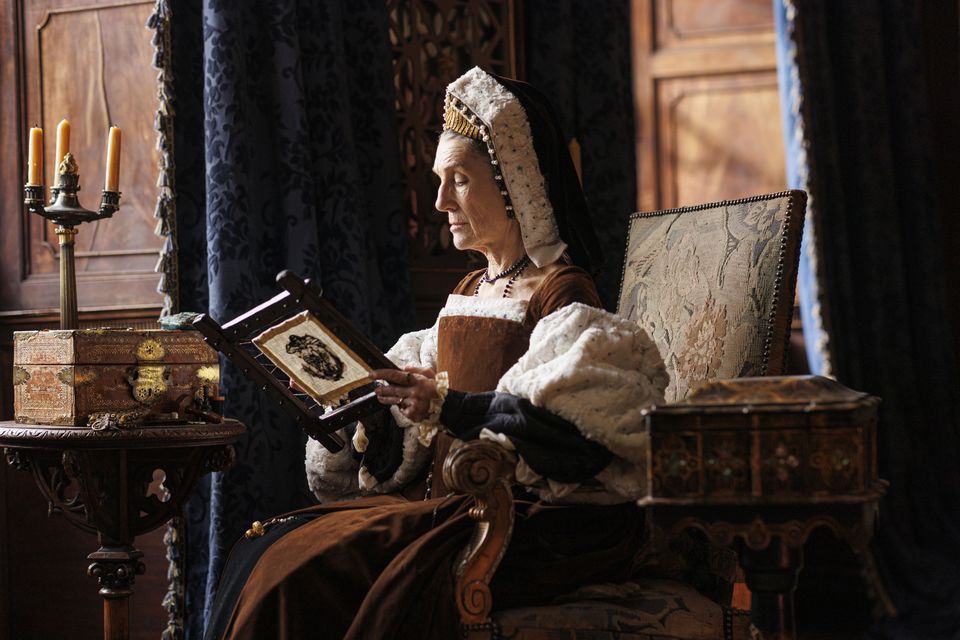Wolf Hall. I’m not convinced. It’s too posh. It’s too pleased with itself in all its incandescent beauty. There’s velvet and fur everywhere, all the time. And now here we are again, for a second “epic new series” as the BBC continuity announcer called it beforehand, nine years after the first.
Wolf Hall: The Mirror and the Light started last night. It’s a terrible title. But we all know what it means: stand by for more candlelight and birdsong. These people do nothing creative with history. A Man For All Seasons was an anarchist production by comparison.
There’s a lot of whispering. The pace is glacial. There are a lot of letters, and the paper crunches as these letters are put into Thomas Cromwell’s jacket and then laboriously taken out again. There’s a lot of bowing, many hats removed and then replaced on the heads of their owners. Henry VIII, played by Damian Lewis, the second most famous ginger in the world, is a big baby who threatens and sulks and shares intimate details of his wedding night. In fact, Henry VIII is very reminiscent of Donald Trump. ”The one thing I cannot endure is ingratitude,” he says. The writing is so bad that it makes you long for Will & Grace.
Trumpian: Damian Lewis as Henry VIII in the new series of Wolf Hall. Photo: Nick Briggs
Henry has a large family and it is full of problems. You might just begin to believe that Hampton Court (or wherever the hell it is; I don’t care) is probably the White House.
And then there is Mark Rylance , playing Cromwell, looking either a) sensitive or b) sad. He’s always whispering. He’s always walking down corridors flooded with sunlight. He’s always taking his hat off and putting it back on again. That’s what you had to do in them days, apparently. At least Cromwell doesn’t have to put the beheaded body of his mistress into its coffin, as Anne Boleyn’s ladies-in-waiting had to do in the opening scenes. You earned your living back then.
In fact, the opening scenes, featuring the execution of Anne, were the best thing here. They had provided the first series with its climax and Claire Foy had been a wonderful Anne. Now we’re into the aftermath of her death. The title of this episode was Wreckage. Wolf Hall is not afraid of the obvious.
There’s music all the time. Recorder music, trumpets, strings. It does get very wearing.
Read more
And really Wolf Hall is a load of hokum, with good actors in very short scenes. Even Harriet Walter was wasted, as Lady Margaret Pole. The imperial ambassador, Chapuys, looks like Laurence Llewelyn-Bowen and sounds like Peter Sellers did when he was ruling England during the days of The Pink Panther. At one point the imperial ambassador and Cromwell have a meeting during a thunderstorm. It’s pretty shameless.
And then there’s the ghost of Cardinal Wolsey, Cromwell’s old boss, played by Jonathan Pryce. He turns up to advise Cromwell while he is looking sensitive in his panelled study – the interiors are lush. The atmosphere is one of smug self satisfaction. The audience has been sold the very comfortable idea that this is television for clever people. Bring back Glenroe, is what I say. Now that was Sunday night television.
Harriet Walter as Lady Margaret Pole. Photo: Nick Briggs
The Tudors are part of England’s creation myth about itself. Presumably it makes English people feel good to look back on that period of their history, which was so turbulent and shockingly violent. Things weren’t great in the colonies either (ahem). But when they watch Wolf Hall, the English audience can congratulate itself on how far they’ve come. Is this the secret of its success?
Not really, because a lot of Irish people – and American people and God knows who else – will be locking themselves away over the next five Sundays to wallow in the meaningful silences which make up such a large part of the content of Wolf Hall. Meaningful silences and the furrows of Mark Rylance’s brow.
And it’s all been done so much better before. Keith Michell in The Six Wives of Henry VIII (1970) and Glenda Jackson as Elizabeth R (1971) were two BBC series with wobbly sets and hardly an exterior scene between them; their budgets probably didn’t allow them to shoot outside. But they had great energy. They were pretty good.
Wolf Hall is luxury television. The production values are so high they’d give you nosebleeds. It’s like being at the most lavish wedding imaginable, and then feeling the luxury begin to cloy. It is possible that Wolf Hall might be excellent television to fall asleep to, like New Tricks.
The worst part is that we are constantly reminded – several times in this episode – that Cromwell is a blacksmith’s son and therefore a plucky outsider at court; the aristocrats are simply dreadful. The big families like the Poles and the Courtenays have no time for Cromwell and not much time for Henry and the Tudors either. So Cromwell is portrayed almost as a modern man, who has succeeded on his own merits. But it seems more likely that Cromwell was Henry’s enforcer, his Steve Bannon if you will. Not that sensitive, as a matter of fact. And not destined for a happy ending either.

